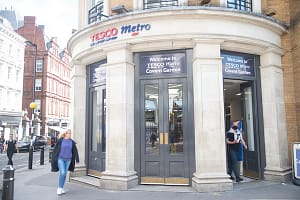Real estate investors in Europe are increasingly turning to alternative asset classes in an effort to retain stability during economically uncertain times. The flexible workspace sector is one of these emerging classes that is attracting attention and inspiring investors.
Investors looking for secure opportunities are buying into flexible office workspace, not just in the UK, but throughout Europe.
Flexible working space sector emerges as new asset class
Research from CBRE shows a 13% per annum growth in the flexible working space sector in the UK. This reflects the fundamental changes made by corporations when deciding on real estate. A sharp increase in the types and quality of flexible workspaces can be seen throughout major European cities.
While start-ups and entrepreneurs have been occupying shared spaces for many years, the interesting shift for property investors major corporations turning to this sector. Corporate views towards flexible office space differs from that of start-ups in terms of cost and scale. This gives landlords scope to adapt their property to meet the needs of this new attitude towards workspace. In turn, this opens up opportunities for investors.
London is buying into this asset class so heavily that it is measured as the global leader for flexible workspace availability. Over the last seven years, according to estate agent Cushman & Wakefield, flexible office space leasing has garnered a 10.6% share of the London market. In comparison, Manhattan’s flexible workspace leasing reached an average market share of 2.9%.
Some experts predict a 30% annual growth for this sector in Europe by 2024, an estimate that is attracting all kinds of investors.
Interest in flexible workspace crosses into traditional institutions
With interest from a wide range of private equity, family office and alternative investors, the flexible workspace asset class is only now big enough to encompass traditional institutions looking for consistent returns.
Now that the interest is there, there is vast potential for flexible workspaces to branch out into a formally recognised asset class. This would follow the example of other property sectors that have done the same, such as student accommodation and hotel space.
Cauta Capital’s CEO William Abundes says: “It’s likely that we will soon see an industry-wide acceptance of a common valuation model for flexible workspace. This will further accelerate the adoption of flexible office space as a distinct and separate asset class. We will then see this asset class become a core part of investor portfolios throughout the UK and Europe.”
Major flexible workspace operators include WeWork and the Spaces brand, with a more recent contribution to the space available from traditional property owners. The likes of Landsec, British Land and Crown Estate have all launched their versions of flexible office platforms over the last two years.
This response from blue chip companies show the strong recognition across the property sector of the reality of modern business needs in the 21st century.
“Property owners are recognising that in order to attract tenants is to offer the kind of flexible workspace they need,” says Mr Abundes. “As more tenants become aware of this possibility, landlords hope they will remain within their wider property portfolio as and when they need to flex.”
Space as a Service disrupting commercial real estate
The concept behind rapid transformation of commercial real estate sector is ‘space as a service (SPaSS). This fundamentally changes commercial landlords from simple rent collectors to cutting-edge service providers driven by technological changes and consumer demand.
SPaSS began in the real estate industry, providing flexible living space for people with new expectations from their accommodation. This idea of flexible space as a service is now transforming the office sector too, and it’s disrupting everything, from leasing terms to form and functionality.
Traditional office space would leave the tenant to source furniture, tech, communications and anything else they need. Now, flexible spaces are offering everything from IT support to supplementary services, such as restaurants and gyms. Add in flexibility, communal working practices and mouldable leasing terms, and the sector is almost unrecognisable from a decade ago.
Offering investors stable yields
For property investors, the fundamental theme since the financial crash in 2008 is the ongoing search for yield. Dealing with falling interest rates in fixed income markets has forced many towards private assets, including commercial property, infrastructure and private equity.
This led to two new sub-sectors emerging as separate asset classes: hotels and student accommodation. For example, global funds from institutions flooding into European, UK and US student accommodation reached the record-breaking amount of £12 billion. This amounts to a four-fold increase since 2006, and a fundamental shift in focus.
Following the success of these newly created asset classes, investors are looking for other sectors that show the same kind of promise. Flexible workspace could well be the sector that offers the security and high returns that investors are looking for.






Leave a Comment